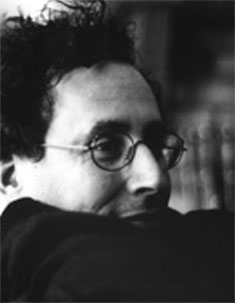
Biography
In "After Angels," a profile of Tony Kushner published in The New Yorker, John Lahr wrote "[Kushner] is fond of quoting Melville's heroic prayer from Mardi and Voyage Thither ('Better to sink in boundless deeps than float on vulgar shoals'), and takes an almost carnal glee in tackling the most difficult subjects in contemporary history-among them, AIDS and the conservative counter-revolution (Angels In America), Afghanistan and the West (Homebody/Kabul), German Fascism and Reaganism (A Bright Room Called Day), the rise of capitalism (Hydriotaphia, or the Death of Dr. Browne), and racism and the civil rights movement in the South (Caroline, or Change). But his plays, which are invariably political, are rarely polemical. Instead Mr. Kushner rejects ideology in favor of what he calls 'a dialectically shaped truth,' which must be 'outrageously funny' and 'absolutely agonizing,' and must 'move us forward.' He gives voice to characters who have been rendered powerless by the forces of circumstances-a drag queen dying of AIDS, an uneducated Southern maid, contemporary Afghans-and his attempt to see all sides of their predicament has a sly subversiveness. He forces the audience to identify with the marginalized-a humanizing act of the imagination."
Born in New York City in 1956, and raised in Lake Charles, Louisiana, Kushner is best known for his two-part epic, Angels in America: A Gay Fantasia on National Themes. His other plays include A Bright Room Called Day, Slavs!, Hydrotaphia, Homebody/Kabul, and Caroline, or Change, the musical for which he wrote book and lyrics, with music by composer Jeanine Tesori. Mr. Kushner has translated and adapted Pierre Corneille's The Illusion, S.Y. Ansky's The Dybbuk, Bertolt Brecht's The Good Person of Sezuan and Mother Courage and Her Children; and the English-language libretto for the children's opera Brundibar by Hans Krasa. He wrote the screenplays for Mike Nichols' film of Angels In America, and Steven Spielberg's films Munich and Lincoln. His books include But the Giraffe: A Curtain Raising and Brundibar: the Libretto, with illustrations by Maurice Sendak; The Art of Maurice Sendak: 1980 to the Present; and Wrestling with Zion: Progressive Jewish-American Responses to the Palestinian/Israeli Conflict, co-edited with Alisa Solomon. His latest work includes a collection of one-act plays, entitled Tiny Kushner - featuring characters such as Laura Bush, Nixon's analyst, the queen of Albania and a number of tax evaders - and The Intelligent Homosexual's Guide to Capitalism & Socialism with a Key to the Scriptures (which premiered at the Guthrie Theatre in May 2009 and opened in New York in 2011). During the 2010-2011 season, a revival of Angels in America ran off-Broadway at the Signature Theater in New York, winning the Lucille Lortel Award in 2011 for Outstanding Revivial.
Mr. Kushner is the recipient of a Pulitzer Prize for Drama, an Emmy Award, two Tony Awards, three Obie Awards, two Oscar nominations, an Arts Award from the American Academy of Arts and Letters, the PEN/Laura Pels Award for a Mid-Career Playwright, a Spirit of Justice Award from the Gay and Lesbian Advocates and Defenders, and a Cultural Achievement Award from The National Foundation for Jewish Culture, among many others. Caroline, or Change, produced in the autumn of 2006 at the Royal National Theatre of Great Britain, received the Evening Standard Award, the London Drama Critics' Circle Award and the Olivier Award for Best Musical. He was also awarded the 2009 Chicago Tribune Literary Prize for lifetime achievement. He is the subject of a documentary film, Wrestling with Angels: Playwright Tony Kushner, made by the Oscar-winning filmmaker Freida Lee Mock. He lives in Manhattan with his husband, Mark Harris.